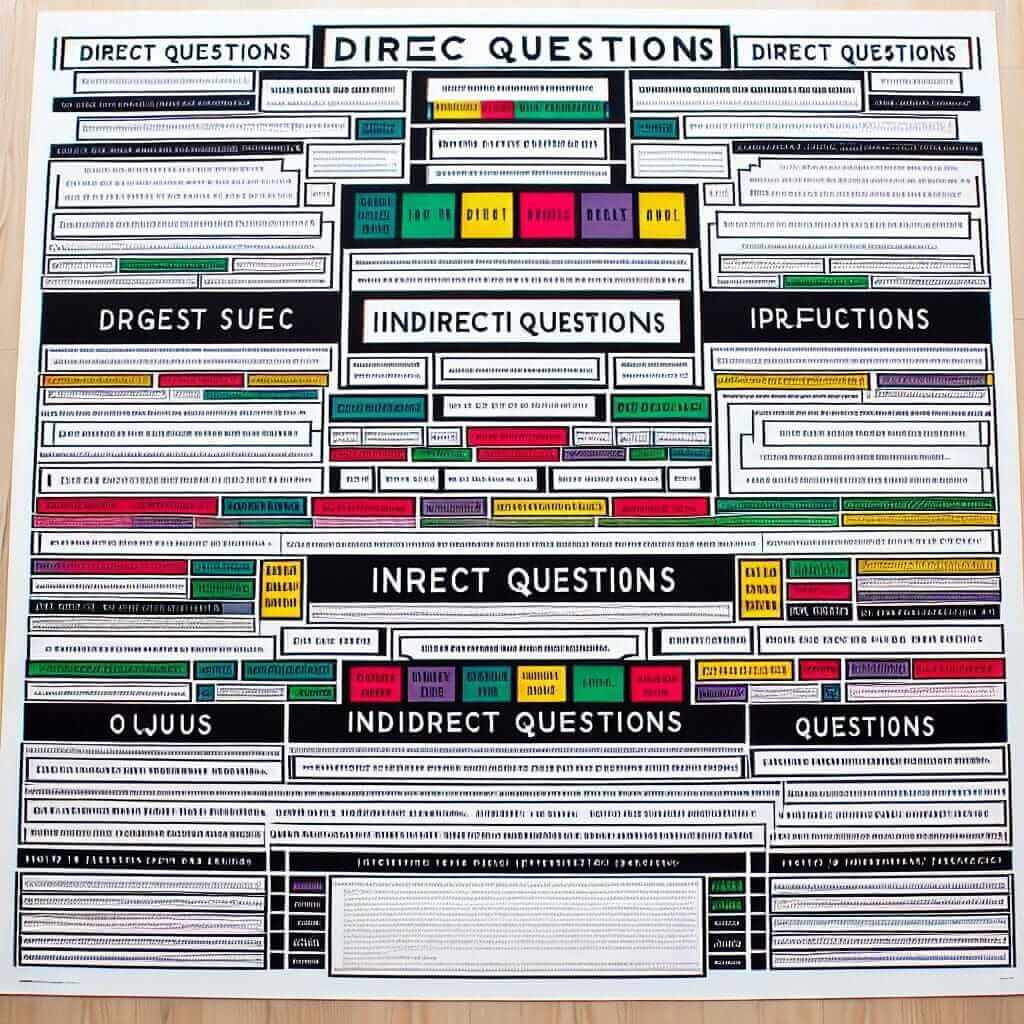Indirect questions are essential for achieving a higher band score in the IELTS exam, particularly in the Speaking and Writing sections. They add a touch of politeness and sophistication to your language, showcasing your command of complex grammatical structures. But how exactly can you use them effectively?
Let’s analyze a few examples:
Direct Question: Where is the nearest bank?
Indirect Question: Could you please tell me where the nearest bank is?
Direct Question: What time does the museum open?
Indirect Question: I’d like to know what time the museum opens.
Direct Question: Why did the dinosaurs become extinct?
Indirect Question: Scientists have long debated why the dinosaurs became extinct.
Notice how indirect questions embed a question within a statement or another question. This subtle shift in structure not only demonstrates your grammatical range but also enhances the clarity and formality of your communication.
Understanding Indirect Questions in IELTS
What are Indirect Questions?
Indirect questions are a more polite and formal way of asking for information. Instead of directly asking a question (e.g., “Where is the library?”), we embed the question within a statement or another question using phrases like:
- Could you tell me…?
- I wonder…
- I’d like to know…
- Do you know…?
- Would you mind telling me…?
Why are Indirect Questions Important for IELTS?
- Grammatical Range and Accuracy: Using indirect questions demonstrates your ability to manipulate complex sentence structures, a key factor in achieving a higher band score in IELTS.
- Formal Tone and Register: Indirect questions are essential for maintaining a formal and polite tone, particularly in Writing Task 1 (letters) and Speaking Part 3.
- Natural and Fluent Communication: Mastering indirect questions helps you express yourself more naturally and fluently, making your spoken and written English sound more sophisticated.
Using Indirect Questions in Different IELTS Sections
Speaking Test
In the IELTS Speaking test, using indirect questions can significantly enhance your fluency and demonstrate your ability to handle a range of grammatical structures.
Part 1: You can use indirect questions when responding to personal questions.
Example:
Examiner: What do you like to do in your free time?
Candidate: Well, I’m really interested in photography. I’d love to know, have you ever tried it?
Part 3: Indirect questions are particularly useful for initiating discussions and expressing opinions in a more sophisticated manner.
Example:
Examiner: What are the main benefits of learning a new language?
Candidate: I think one of the biggest advantages is that it opens up new cultural horizons. Would you agree that it also enhances your career prospects?
Writing Test
In the IELTS Writing test, indirect questions are primarily used in Task 1 (letters) to request information politely.
Example:
Task 1 Prompt: You recently attended a conference and lost your bag. Write a letter to the conference organizers to inquire about your lost item.
Sample Sentence: I would be grateful if you could let me know if anyone has turned in a black leather bag.
Reading and Listening Tests
While you won’t be required to produce indirect questions in the Reading and Listening tests, understanding their structure can be helpful in comprehending complex sentences and identifying the writer’s or speaker’s intent.
Tips for Mastering Indirect Questions
- Word Order: Remember that the word order in an indirect question follows the structure of a statement (subject + verb), not a direct question.
- Tense Changes: Pay attention to any necessary tense changes when converting a direct question into an indirect question.
- Punctuation: Use a period at the end of an indirect question, as it forms a complete sentence.
 Indirect Questions Examples
Indirect Questions Examples
Common Mistakes to Avoid
- Incorrect Word Order: Using question word order in an indirect question (e.g., “Can you tell me where is the bank?”).
- Missing Question Word: Forgetting to include the question word (who, what, where, when, why, how) in the indirect question.
- Incorrect Punctuation: Using a question mark at the end of an indirect question.
By understanding the structure, function, and nuances of indirect questions, you can elevate your IELTS performance and communicate with greater clarity, fluency, and sophistication. Now, are you ready to put your knowledge to the test?

